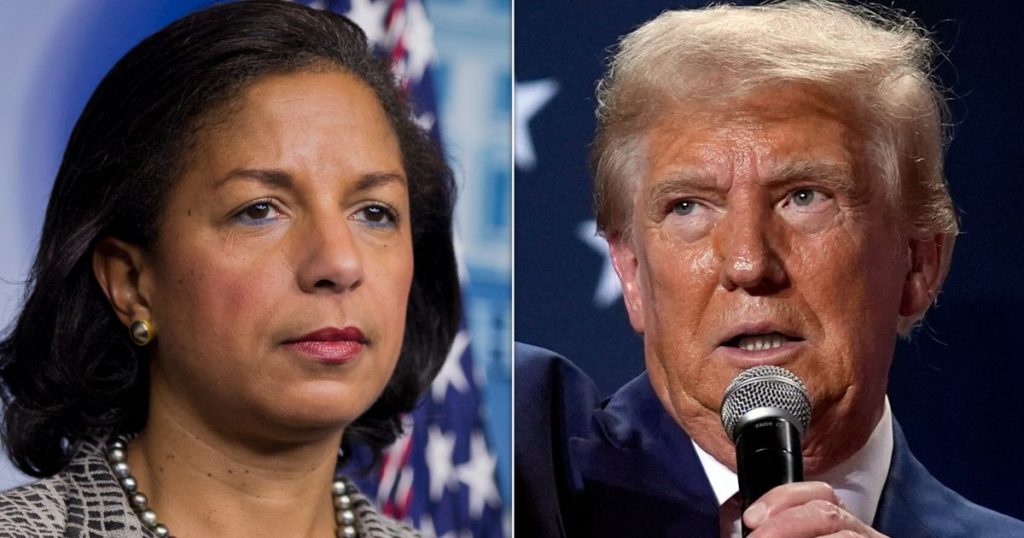Former U.S. national security adviser Susan Rice criticized Donald Trump for his foreign policy agenda, accusing him of appeasing Russian President Vladimir Putin during the Ukraine invasion. She compared Trump to Neville Chamberlain, known for his policy of appeasement towards Adolf Hitler before World War II. Rice pointed out Trump’s favorable treatment of Chinese President Xi Jinping and cited over 700 bipartisan national security leaders who endorsed Vice President Kamala Harris instead.
The open letter supporting Harris was signed by prominent figures such as former defense secretaries Chuck Hagel and William Cohen, as well as ex-CIA director Michael Hayden. Rice argued that Trump’s actions were detrimental to national security and accused him of being an “appeaser” in his dealings with foreign leaders. Trump’s spokesperson, Steven Cheung, dismissed the endorsements from these officials, labeling them as individuals who profited from endless foreign wars at the expense of the American people.
Rice emphasized the need for a bipartisan approach to national security, highlighting the importance of having a responsible and rational center between Democrats and Republicans. She argued that Harris, with her temperament, intellect, vision, and experience, would make an effective and strong commander-in-chief on day one. Rice criticized Trump’s behavior as undermining America’s strength, alliances, and values, and accused him of prioritizing personal interests over the country’s security.
The critique of Trump’s foreign policy agenda comes amidst ongoing tensions with Russia over the invasion of Ukraine and growing concerns about the administration’s approach to global affairs. Rice’s comparison of Trump to historical figures known for appeasement highlights her concerns about the president’s leadership style and decision-making process. The endorsement of Harris as a better alternative reflects the belief that a change in leadership is necessary to address the challenges facing the United States in the international arena.
Overall, Rice’s remarks underscore the importance of strong and principled leadership in national security matters, particularly during times of crisis. By highlighting the dangers of appeasement and the need for a bipartisan approach, she calls attention to the critical role that the president plays in shaping America’s foreign policy agenda. The contrast between Trump’s actions and the endorsements of Harris by national security leaders serves as a stark reminder of the stakes involved in choosing the country’s next commander-in-chief.


